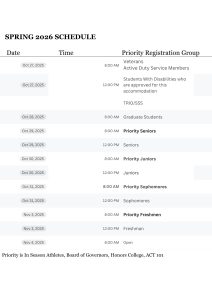The Worldly Madame X
Madonna during her Rebel Heart Tour, 2015.
September 5, 2019
Madonna Louise Ciccone, at an amazing 61 years-of-age, is consistently releasing new albums every 2-4 years. This year’s album released on June 14th, 2019, Madonna’s fourteenth studio album, Madame X is a one-hundred percent reinvention of her sound from the vast catalogue of her discography.
Having reinvented her sound from the dance-rock and dance-pop sound, a.k.a. 80’s music, from her 1984 album Like a Virgin, to a disco, deep house and electronica sound for her 2005 album Confessions on a Dance Floor, to an EDM sound for her 2012 album MDNA, Madonna never ceases to reinvent.
With every passing Madonna album, it is astonishing to witness how much her sound changes and alters. Madame X is not only the album title, but it is also Madonna’s newest alter ego.
She was given the nickname Madame X at the age of 19 by her then dance teacher, Martha Graham. Madonna says that Graham said to her, “‘I’m going to give you a new name: Madame X.
Every day, you come to school and I don’t recognize you. Every day, you change your identity. You’re a mystery to me.’” (Polk). Alike with that philosophy of everlasting reinvention, Madame X is a legitimate musical odyssey around the Earth.
Having relocating her life to Lisbon, Portugal in 2017 for her son to be able to attend a top soccer academy, Madonna became inspired by the new music that surrounded her. Not only is she thoroughly pulling from her inspirations in Portugal, Madame X carves her way into all genres.
This album, with as much emphasis as possible, is a global masterpiece. Each track on this album has its own separate genre, and yet they all create such a cohesive work of art. Madonna even goes as far as to
speak four different languages throughout this album: English, Spanish, Portuguese, and Brazilian Portuguese. As a result of this album’s tedious preparation, Madame X debuted at number-one on the Billboard 200 chart.
Again, each track holds its own universe and genre when listened to individually. Cohesively now, there is nothing more worldly than this album released by a fairly mainstream artist.
The first track of the album is titled “Medellín” and is a Latin pop duet with reggaeton singer Maluma.
As Madonna sings in Spanish, the song is about the pair wanting to travel to Maluma’s birth city in Colombia while reflecting on their history.
The second track is an extremely experimental song titled “Dark Ballet” where the subject of going through the dark ballet of life is discussed. Following is the third track, “God Control”, which is an experimental disco track with a blend of gospel choir.
Arguably the most politically charged song of the album, “God Control” heavily criticizes the lack of gun control in The United States of America.
The fourth track “Future” is a dancehall reggae-like song with rapper Quavo that discusses how people are blindingly not permitting other fellow people to come into the future.
The fifth track, inspired by the Cape Verde music Batuque, “Batuka” features the all-female drummer group called The Batukadeiras Orchestra. This track densely discusses the need to fight, combat, and defeat oppression.
The sixth, and the first song written for the album, “Killers Who Are Partying” is heavily inspired by Portuguese fado while featuring a very minimal production. This is the first song where Madonna sings a few lines in Portuguese.
The message of this track vocalizes the need for representing marginalized groups, such as the LGBT+ community, sexual assault victims, Muslims, etc., all while their killers, or those of us humans doing nothing about their injustices, are partying.
“Crave” is the seventh track and is a trap ballad with supporting vocals by rapper Swae Lee discussing the cravings for someone who is an unreciprocated lover. Following is the track “Crazy,” a soul-infused song with a Portuguese accordion about a woman who refuses to let love consume her and drive her crazy. This is the second track where Madonna sings a few more lines in Portuguese.
The ninth track is titled “Come Alive” and is inspired by the music of North Africa where the Gnawa tribe turned the shackles that enslaved them into musical instruments called Krakebs.
“Extreme Occident” acts as the tenth track containing elements of Indian music as Madonna is, singing a few lines in Portuguese again, discussing her journey around the world while attempting to find her identity. This is arguably her most autobiographical track to date.
The eleventh track “Faz Gostoso” features vocals by Brazilian-born singer Anitta and is actually a cover of the signature Brazilian-funk hit of Brazilian-born artist Blaya.
This track is sung in both English and Brazilian Portuguese as Madonna knew she needed to represent all the realms of the Portuguese language throughout the world.
The twelfth track titled “Bitch I’m Loca” features vocals again from Maluma and is a reggaeton song with Madonna singing most of the track in Spanish.
“I Don’t Search I Find” returns to her house music sound, relative to “Vogue,” but expands upon the sound much more heavily.
The fourteenth track, “Looking For Mercy” is Madonna at her most vulnerable on this album while featuring a spotlight on Madonna’s vocals as she sings about her isolation in and from this world.
The fifteenth and final track is seen as the most powerful self-loving anthem on Madame X. “I Rise” brings to light the dire importance of rising up from darkened and difficult times. Additionally, “I Rise” starts with a vocal clip from a speech given by gun control activist Emma González.
While fifteen tracks make up the deluxe edition of this album, there are actually three extra songs that were selectively released with the bonus disc of the deluxe 2-CD release and the box set edition of the album: “Funana,” “Back That Up to the Beat,” and “Ciao Bella.”
No matter the length of the album, there is no denying how political Madame X is. There is so much turmoil and anger being aimed at our day-to-day society through these tracks.
Madonna is not weary about using her fame and power to bring attention any and all crippling and disturbing issues.
The last time Madonna completed something of this political caliber, albeit controversial, was back in 2003 with the release of her ninth studio album titled American Life. This rightfully dissects the wrongful nature of American life in the early 2000s.
The exact word to begin to describe Madame X is: worldly. There are so many ranges of music throughout this work that one feels as if they are travelling the world through each song.
This album is just different than all the mass-produced music that is infiltrating society. Different stands out. Being different makes a difference.
Madonna creates music not for the radio but for the sake of music itself. And Madame X is far from being cookie-cutter music.



























